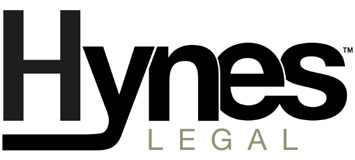The draft Standard Module has been released
We don’t think you could call any of the proposed changes revolutionary, but there are some interesting tweaks to some areas of law – particularly for developers. The changes are not in response to the second issue paper, which related to by-law enforcement and the like. These changes are much more mundane.
At this stage, we only have the Standard Module. It is probably safe to say that changes to the other Modules may follow once the consultation period has closed.
In no particular order, the changes, and our comments are:
| Change | Comment |
| Electronic voting will be allowed for all types of ballots | The regulation module finally moves into the digital age. Bodies corporate can authorise electronic voting by ordinary resolution and owners have to opt in for voting in this manner. It will not be automatic.
If the body corporate does this, and wants to use electronic voting for secret ballots, the technology used must not disclose a voter’s identify and must be capable of rejecting owners not eligible to vote or who have voted already. ‘Vote early and vote often’ is something you will only hear at state and federal elections – not body corporate ones |
| Creation of a ‘minor’ committee – s. 9 | For schemes with three or fewer lots there is no need for committee elections and the owners get to decide amongst themselves who gets what committee role. |
| Prohibition on more than one family member on committee – s. 11(2) | We have seen a bit of this recently. Husband and wife own a lot. Husband nominates for the committee. The wife becomes a nominee representative for a lot owned by someone else in the scheme. They both get voted onto the committee.
‘Family’ is widely defined. There is an exception to this if not all the committee spots are already taken. |
| Non-voting committee members – s. 12 | The body corporate manager and caretaker cannot be voting members of the committee (still) – even if they own a lot. |
| Removing committee members – s. 46 | There is an express right to remove committee members by ordinary resolution. There are some tweaked procedures to remove committee members for a breach of the Code of Conduct. To do that still requires an ordinary resolution.
So practically, the provision remains unchanged. If you need an ordinary resolution, and you have the votes for that, why bother with trying to create a reason via an alleged breach of the Code of Conduct, and not just vote the committee member out without having to show cause? |
| Motions for committee meetings – s. 60 | Owners can submit motions for committee meetings. This is going to be super interesting in the context of nuisance owners and a committee’s obligation to act reasonably.
There will be lots of business in this one for lawyers. |
| Attendance at committee meetings – s.64 | This can be by electronic means provided the committee resolves to allow that. |
| Unfinancial committee members – s. 66 | If a committee member or their nominating lot owner are unfinancial, neither they nor anyone holding their proxy can vote at committee meetings, but they are still counted towards a committee quorum.
Self-nomination for committee becomes more important. If you are nominated by someone else, you do not necessarily know their financial position on an ongoing basis. You might know at the time of nomination but throughout the year it could become hazier. |
| Votes outside committee – s. 70 | These will now lapse if not passed within 21 days of being circulated. |
| Receipt of benefits – s. 81 | Committee members must not receive a direct or indirect benefit from a caretaker or other service contractor unless that benefit has been authorised by ordinary resolution at general meeting. A disclosure to the committee is not sufficient.
The definition of ‘benefit’ does not extend to letting services, which are specifically authorised. This one will also be interesting. What does this extend to? A carton of beer at Christmas?Tickets to the footy? A meal out with respective spouses? Lotto tickets? |
| Motions with alternatives – s. 91 | An issue with these has been clarified and the example used in the Module is informative.
Consider a motion to perform common property works being put forward. The first motion is to ask owners whether they want to do the works with a ‘yes/no’ answer. After that, the spending on the works being authorised could require an ordinary resolution for the first proposal and a special resolution on the second because it was a bigger proposal. If the first option was approved, then the first motion with the ‘yes/no’ answer needs to be an ordinary resolution. If owners went for the more expensive version, then the ‘yes/no’ question needs to be decided on a special resolution basis. |
| General meeting agendas – s. 95 | The committee must formally approve these, which means no more last-minute inclusions of motions by anyone. |
| First EGM – s. 98 | A developer is required to hand over certain material to the body corporate at the first EGM. This material has now been expanded to include:
A facilities management plan is a new concept and effectively means a maintenance and inspection schedule for the common property. At this stage, none of these seems to require disclosure to would-be buyers, but we can see the administrative fund forecast being required to when the Act (as opposed to the Module) gets its next review. |
| Quorums for general meetings – s. 101 | Bodies corporate will be able to reduce the requirements for a quorum to 10% of the voters for the scheme and one person being present in person. The current rules are here.
This will remove the need for some adjourned meetings by allowing them to happen on the day they are first called. |
| Powers of attorney – s. 102(3) | A person can act for more than one lot owner under a power of attorney only if they are a member of the lot owner’s family. |
| Motions ruled out of order – s. 115 | The reasons for doing this must be included in the minutes of the meeting sent to owners, as opposed to just being recorded as out of order. |
| Subsidiary scheme proxies – s. 128(h) | These can now be given for voting at principal body corporate level where the owner of the lot is not a subsidiary body corporate. |
| Disclosure of commissions – s.154 | Anyone receiving a commission under a body corporate contract (such as an insurance commission) must disclose that in writing to the body corporate along with the actual monetary amount of it before the body corporate enters into that contract. |
| Body corporate insurance – s. 170(1)(e) | If a committee wants to place insurance that exceeds their spending limits they are going to need to have that spending approved at general meeting first. |
| Quotes for body corporate insurance – s.172) | If the insurance is above the major spending limit for the body corporate but within the committee spending limit, the committee must have two quotes. |
| Defect assessment motions – s. 180 | A body corporate will have a statutory obligation to have a motion on the agenda for its second annual general meeting to commission the engagement of a person to assess defects on the common property.
Where the lots are standard format lots and stand-alone, this can be a voluntary scheme. |
| Body corporate insurance – s. 194 | The amount paid to any broker must be disclosed in the AGM material. |
| Principal body corporate committee – Dictionary. | A principal body corporate can decide by ordinary resolution to expand the committee to up to 12 people if there are more than 7 lots. |
Submissions close on 18 October.
You have to remember these are not law yet and may change. We will keep you informed.
Other things you may be interested in
The government summary of the proposed reforms
Our newsletter on QUT’s recommendations to government





